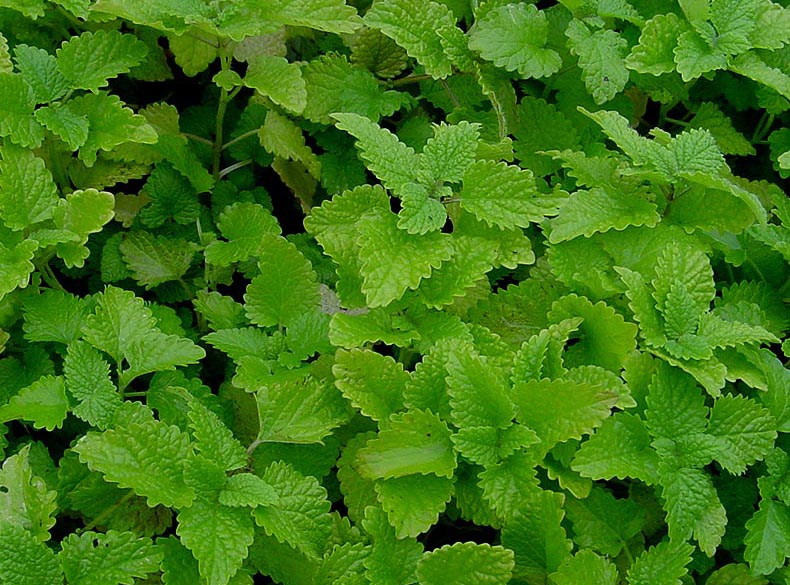
Lemon balm
Share
Lemon balm – a member of the mint family, this plant grows well in the cool, temperate climate of the Pacific Northwest. Its Latin name is Melissa officinalis, and its leaves are used medicinally and are full of volatile/essential oils with a lemony scent. As is the case with most plants that are a member of the Lamiaceae (Mint) family, this herb has an affinity for the nervous system and the digestive tract. Because our stomach and intestines are highly innervated (surrounded with nerves), this herb can help relax the nerves and smooth muscle around the intestines, calming a nervous/anxious or tense stomach and helping to dispel gas and bloating.
Lemon balm’s primary actions in the body are: nervine, antispasmodic, carminative, antidepressant, anti-anxiety (calming), antimicrobial (including antiviral), diaphoretic, and hypotensive.
Based on these primary actions, lemon balm is indicated for both anxiety and depression and for nervous heart palpitations and digestive upset. It is a fabulous calming herb, considered cooling and sedative, gentle enough for children to help promote restful sleep. It is used during colds & flu for its diaphoretic action, helping to break fevers and promote rest. Its antimicrobial properties also make it a beneficial herb or use during viral or bacterial infections, particularly as a hot tea where it can promote perspiration.
Lemon balm is also one of the few herbs that is indicated for use in hyperthyroidism. One herbalist, Sharol Tilgner, found that the fresh juice was most helpful for this (she would press and freeze the juice in ice cube trays to be used when needed).
As a carminative, antispasmodic, and nervine, lemon balm is indicated when someone has gas, bloating, or general indigestion. The volatile oils act locally on the smooth muscle surround the intestines to relax and promote passage of gas so there is not as much gripping and pain.
The essential oil has all of these properties, as well as being used in salves topically for its antiviral and anti-inflammatory effect for herpes/cold sores.
The fresh herb is the most flavorful, and if you have access to it in your yard or garden, use this to make a tea. However, the dried herb will certainly suffice, using about 1 Tablespoon herb/cup of hot water and steeping approximately 10 minutes, and has a grassy, mild lemon-y flavor. The tincture or glycerite (extract in vegetable glycerine) are also great, because they are extracts of the fresh plant.
